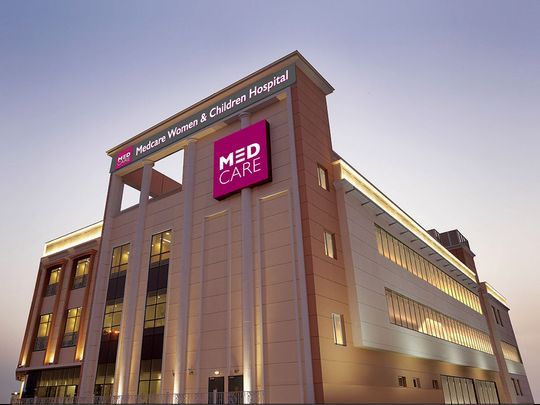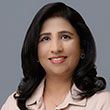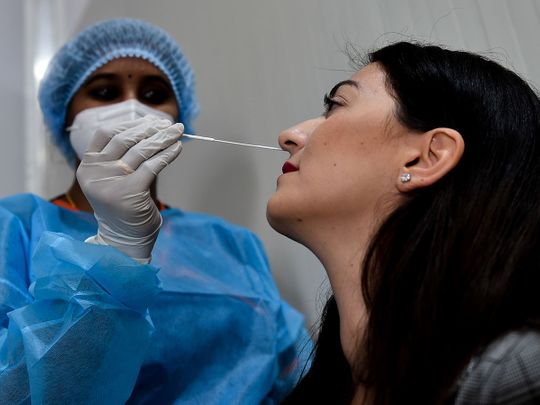Medcare Women & Children Hospital calls for breast cancer screening with a special limited offer

Image Credit: Supplied
Early intervention saves lives. The American Cancer Society puts the five-year survival rate of those in whom breast cancer is detected early, at a localised stage, at 99 per cent. Besides higher survival rates, there are many benefits to early detection, says Dr Sonia Chaudhary, Obstetrician and Gynaecologist at Medcare Women & Children Hospital.
Screen-detected cancers are smaller and less aggressive, making treatment easier and less aggressive.
It also means more breast tissue may be preserved, taking less toll on a person’s body image and therefore, overall sense of well-being. Add to that, the treatment is less costly than for advanced-stage cases and tailored approaches based on early detection improve outcomes.
How then should a person keep an eye out for breast cancer? Begin with self-examination, says Dr Zofia Gordon Sönmez, Obstetrician and Gynaecologist at Medcare Women & Children Hospital. “Self-exams should be repeated monthly – preferably after the end of menstrual bleeding when there is less water retention in the body, breasts are not swollen, not tender and therefore easier for palpation. Post-menopausal women should check their breasts every four weeks.” A quick inspection allows women to know their breasts and be able to tell if even subtle changes appear.
As for when this change warrants a doctor’s appointment – the answer is every single time.
Every time a newly palpated lump is found it should be checked by a doctor.
And even if there’s no change, you should appear for screening tests such as mammogram after the age of 40 every year and 30, if you are in a high-risk bracket. “The clinical symptoms like change in size, shape or appearance, skin redness, asymmetry, a newly inverted nipple, and leak from the nipple are symptoms of more advanced disease,” says Dr Gordon Sönmez. “This is why screening is so important – it detects the cancer before it is clinically symptomatic.”
Who is at risk?
Some women are at greater risk for breast cancer than others. This is especially the case if you have a close relative (such as your mother, sister or daughter) who has been diagnosed with cancer. “Genetic counselling may be recommended to assess the need for genetic testing,” says Dr Chaudhary. Other risk factors include BRCA1 or BRCA2 gene mutations, extended hormone replacement therapy and specific genetic syndromes or medical conditions such as Li-Fraumeni syndrome or Cowden syndrome. “Women who received radiation therapy to the chest area, particularly during childhood or adolescence, may have an increased risk. And certain ethnic groups may have a higher risk of carrying BRCA mutations, which can increase the risk of breast cancer,” adds Dr Chaudhary.
While genetics is a risk factor, there are plenty of lifestyle behaviours that influence outcomes. Dr Gordon Sönmez explains: “Unhealthy diet, excessive body mass, alcohol consumption, lack of physical activity, long-term menopausal hormonal therapy, for more than five years, or using oral contraception as teenagers are found to increase the risk of breast cancer. Therefore, lifestyle changes can reduce the risk. Also, breastfeeding is known to be a protective factor.”
Busting the myths
Just as important is the dire need to debunk the misconceptions surrounding the disease. Such as the thought that mammograms are painful and dangerous. “Mammograms may cause some discomfort, but they are generally well tolerated and safe,” says Dr Chaudhary. “The benefits of early detection through mammograms far outweigh any temporary discomfort.”
Many believe that only women can get cancer or only those with family history are at risk. Dr Chaudhary explains: “Both men and women can get breast cancer. Age is no bar. Most cases of breast cancer occur in individuals with no family history of the disease. Having a family history can increase your risk, but it’s not the sole determinant. In fact, about 85 per cent of breast cancers occur in women who have no known family history of the disease.”
It’s also not true that only women with large breasts can get cancer or that a lump in the breast means you’ve got it. “Not all lumps are cancerous. Many lumps turn out to be benign (non-cancerous) conditions. Nevertheless, any unusual lump should be evaluated by a healthcare professional,” she says.
She also debunks the belief that antiperspirants and deodorants cause breast cancer.
And not every case of breast cancer requires a mastectomy. “Many cases of breast cancer can be treated with less extensive surgeries, like lumpectomies (removal of the tumour and surrounding tissue) combined with radiation therapy,” she says.
Learn from reliable sources and take action
One of the ways to dispel fear and increase your awareness is to rely on reputable sources for information. “Consult Medcare Women & Children Hospital medical experts for accurate information about breast cancer,” says Dr Chaudhary. “Understanding the facts can lead to better awareness, early detection, and improved outcomes for those affected by this disease.”
When was the last time you went for a mammogram? Medcare Women & Children Hospital has created a special discounted package priced at only Dh350. The package includes a consultation and the choice between an ultrasound and a mammogram.
Click here to book your breast cancer screening at Medcare Women & Children Hospital




